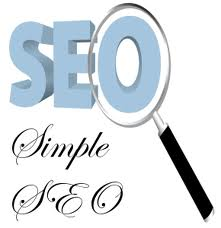 As a small business owner, or marketer, it's important to have a basic understanding of SEO - Search Engine Optimisation. Maybe you've heard of all the recent algorithmn changes from Google, or maybe you're just confused. The purpose of this article is to help small business understand the importance of SEO for marketing, without the techy speak.
As a small business owner, or marketer, it's important to have a basic understanding of SEO - Search Engine Optimisation. Maybe you've heard of all the recent algorithmn changes from Google, or maybe you're just confused. The purpose of this article is to help small business understand the importance of SEO for marketing, without the techy speak.
First I should point out that when you set up your website, structure and load speed time are important, so while you may not have the expertise to do this, make sure you understand that it's important when you are speaking to a web designer or web developer for your site.
Understanding SEO
Search Engine Optimisation (SEO) means optimising your content online so it shows up in search results. Google is continually making algorithmn updates to reward good quality content that searchers want to read and share, and punishing those who are involved with schemes trying to 'trick' the search engines like poor quality links, poor quality directories and link exchanges. This all may sound like jargon to you but it's important to understand that these SEO tactics are punished by Google.
Your SEO strategy should be to publish good quality content. Simple, right?
The first step is to understand which keyword phrases (search terms) you want your content to show up in searches.
Next, you want to make sure Google knows what the content is about, this is done by adding the keyword phrase to the following areas when creating a new page.
- Page title
- Heading for document
- In the copy of the document
- File name of any images
- Meta description
Most website platforms give you the option to enter this information when creating a page - if yours doesn't either ask your web designer/developer to show you. Or contact me so I can discuss a better option for your website so you can do this yourself - trust me this step should be easy.
And finally, here is how Google determines good quality content:
- What is the visitor experience? Tip: Write relevant, and either educational or entertaining copy that relates to the heading, and keeps the visitor reading.
- How long does the visitor stay on your page? Tip: Write longer articles 600 words is recommended.
- Does the visitor click through to other parts of your website? Tip: Include relevant links, and next steps to make it easy for the visitor to navigate to the next logical page.
- Is the visitor sharing your content? Tip: Include social share buttons to make it easy for the visitor to just click on a "retweet" or "Like" or "LinkedIn" button to share with their network.
So as you can see SEO is quite simple if you stay focused on publishing good quality content your audience will want to read and share.
For tips on writing content check out some of the links below:
5 Steps To Help Marketers Create Content Marketing People Will Love
Blogging Made Simple: Learn How To Write About What You Know
Buyer Persona + Inbound Marketing = Success: Learn why and how here

